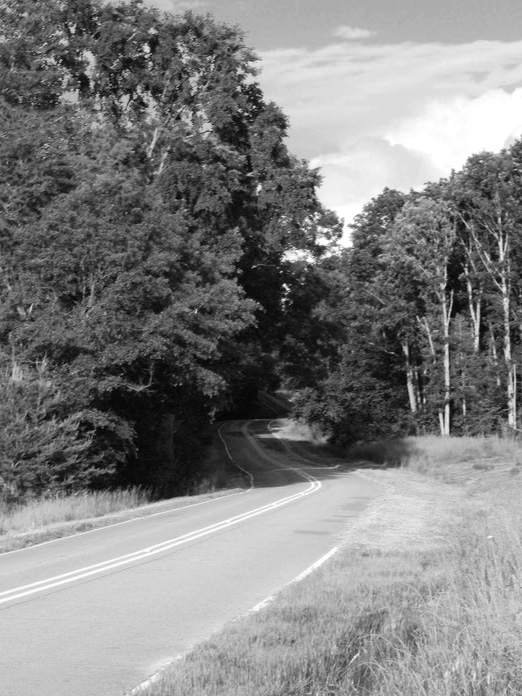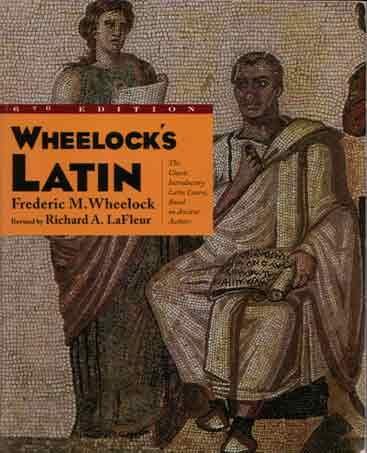 In the next phase of my life, I spent a great deal of time on the road. I took several grand road trips, taking off all across the Southern United States. I was always going somewhere, if only to the next town or county or state. At the time, what I thought I felt was freedom, liberation, the ability to go where I wanted, when I wanted. But I was irresponsible with my money and time, impulsive, and foolish. In retrospect I can see that I was actually in flight — fleeing to escape the pain of my failure; to escape who I was and where I was; to be someone else, somewhere else. Many people fall into drugs or alcohol out of similar drives. I never went to those places, but I fell to many other sins during this time. The chief among them, though — the root of everything else — was always that escapism.
In the next phase of my life, I spent a great deal of time on the road. I took several grand road trips, taking off all across the Southern United States. I was always going somewhere, if only to the next town or county or state. At the time, what I thought I felt was freedom, liberation, the ability to go where I wanted, when I wanted. But I was irresponsible with my money and time, impulsive, and foolish. In retrospect I can see that I was actually in flight — fleeing to escape the pain of my failure; to escape who I was and where I was; to be someone else, somewhere else. Many people fall into drugs or alcohol out of similar drives. I never went to those places, but I fell to many other sins during this time. The chief among them, though — the root of everything else — was always that escapism.
After several years, I returned to school, to a more local university to which I could commute. Out of practical concerns, I began a degree in computer science. Programming was always something I had enjoyed, and I saw in it a good career. Immediately, though, history was once again a compelling interest. Whenever I picked up a course catalog, I dreamily eyed the history section, imagining all the history courses I would somehow have time to take. The first history course I took was Western Civilization from ancient to medieval. The topic I chose for my research paper, picked from a preselected list of topics, was the Great Schism. At the time I picked it, I was thinking of the Great East–West Schism that formally split the Western and Eastern Churches — a topic that interested me, and still does; I would still like to learn more about it. I remember being initially confused that there was more than one “Great Schism” — and whatever sources I found led me to write instead about the Western Schism, an event I had previously been unaware of. Although I’m not sure it presented a very positive picture, that research gave me my first introduction to the medieval papacy, and my first academic look at the Catholic Church.
For my second history course, the second half of Western Civ, from Renaissance to modern, I carefully studied the faculty bios of the history department. I chose Dr. G, who impressed me as being the most erudite and the most learned about what the course would be on. I was not disappointed. I had never had a teacher like him, who enriched his lectures with only the drama of history, but a sense of the underlying forces that drive history. He taught socratically, challenging me in new ways and urging me to do more than sit back and take notes. Initially, I did well. But towards the middle of the semester, a nagging anxiety and perfectionism took hold of me. His research paper called for a historiographic approach — something many students never hear about until graduate school — and paralyzed with fear, rather than seek help, I sank.
I remember an episode during this dark time that presaged my journey to Rome, and my entire future course, more certainly than anything else I can think of. Like many a depressed and struggling young man before, having visions of my own impending doom, I turned to Mozart’s Requiem. I listened to it obsessively, often on my commutes to school. It was Latin; I wondered what its words meant. I went online and printed off a transcript of the Latin and its translation. Within a few weeks, I had memorized it. I had little concept then that was I was learning was liturgy, or even what that meant; but it planted a seed that was to bear fruit.
I tanked completely that semester. It was the first of many times I failed, usually in the face of term papers and major projects. I ran away and medicated rather than faced my demons. But I returned. The next semester was better. It wasn’t until a year later that I dared attempt another history course — but rather than avoid the situation and the man who had defeated me before, I recognized the value of the challenge Dr. G presented. I registered for his course again, and charged once more unto the breach.
This time, I excelled thoroughly. I clearly had an aptitude. I wrote my research paper, the historiographic one, on different historians’ interpretations of Charles I and the Battle of Naseby. That time, it presented little difficulty. I remember staying up all night (oh, to still be able to do that) the night before the final exam, rewriting and memorizing my notes backward and forward: I blew the exam out of the water. It felt to me a great coup, the first victory in overcoming my demons.
In order to major in computer science, I would have had to minor in mathematics. At one time, when I was younger, I was pretty good at math. But that part of my brain had atrophied over the years, partly because it had then been five years since I had graduated from high school, but mostly because I had lost interest in it. It had become something painful for me, and even worse, I was unwilling to devote the time necessary to study for it. The next semester after my triumph with Dr. G, it was time for me to face Calculus B. The first day of class, the professor, a kindly man named Dr. M, gave a pre-test to assess where we stood coming into the course: I missed every single question. Afterward in his office, with concern in his voice and not a trace of condescension, he asked me if I was sure I needed to be in his course. “No,” I answered, quavering.
So I needed another course to fill out my schedule. That semester I was also taking another course with Dr. G, a survey of ancient history. In all of Dr. G’s courses, he peppered explications of the etymologies of words, to uncover the deeper meanings of concepts: I was fascinated. As it happened, Dr. G was also the professor of Latin at my school, and he frequently plugged it in his history classes. Poring over the course schedule, looking for something I could fit in, I fell upon Latin. I thought back to my fascination with the Latin of the Requiem Mass. It could work, I thought.
 I went to Dr. G’s office, and told him that I was thinking of transferring into his Latin class. By this time it was three or four days into the course, but he didn’t hesitate, and didn’t give me the opportunity to. “Well, come on; it’s about to begin.” He handed me a copy of Wheelock’s Latin.
I went to Dr. G’s office, and told him that I was thinking of transferring into his Latin class. By this time it was three or four days into the course, but he didn’t hesitate, and didn’t give me the opportunity to. “Well, come on; it’s about to begin.” He handed me a copy of Wheelock’s Latin.
Immediately, the Latin language seized me. I went home that night and wrote in my journal that I didn’t think there would be any turning back. And there wasn’t. If I was abandoning math, then logically I would have to abandon computer science also. And I did: within a year, I was a history major. The next summer after taking Latin, I translated the Dies irae of the Requiem Mass on my own. So marked the first, real steps in a journey that has led me to Rome.


Pingback: A Musical Journey « Catholicus nascens
Pingback: My first blog awards! « The Lonely Pilgrim
This is picking up steam… I’m enjoying how you’ve structured your journey.
Thanks so much, brother. 🙂 I’m not to the end yet — there will never really be an end! — but I’m nearly caught up to my conversion.
I fell in love with Koine Greek. I would have been an Engineering major if it hadn’t been for my Bible professor’s “Greek commercials.” 🙂
Pingback: A life update | The Lonely Pilgrim